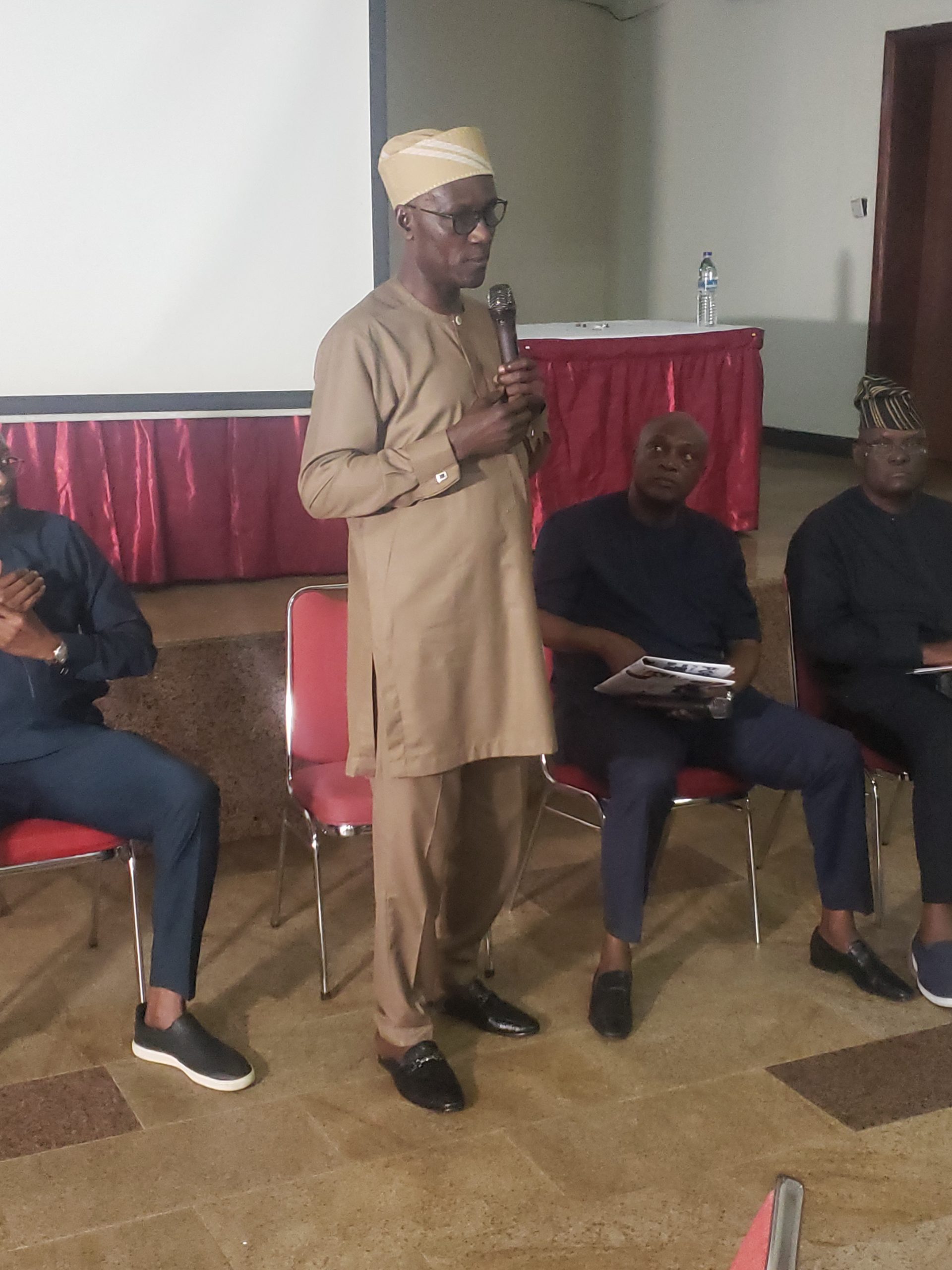Maritime
NISA Says Establishment of Maritime Bank Will Enhance Cabotage Trade

BY GBOGBOWA GBOWA
The Nigerian Indigenous Shipowners Association (NISA) has advocated the setting up of a special maritime bank to cater exclusively to the needs of maritime industry in the area of capacity building, noting that theabsence of critical financial intervention will continue to slow down the scale of growth.
Above was contained in the position paper NISA delivered at the recently concluded stakeholders’ roundtable organized by the Federal Ministry of Marine and Blue Economy in Lagos on the effective implementation of the Cabotage Act.
Making the presentation, the President of NISA, Otunba Sola Adewumi noted that whereas the maritime sector which is investment capital intensive is suffering from proper financial intervention, he further note that only a deliberate policy formulation aimed at creating the right incentives can adequately jump start the cabotage regime into concrete national gains.
He explained that the establishment of a maritime bank will serve as critical key to unlocking the potentials of the Cabotage Act, and urged the Nigerian government to consider the establishment of a specialized maritime bank that will offer financial assistance at single-digit interest rates to provide the needed impetus for growth and development in the maritime industry.
Otunba Adewumi also mulled the removal of waivers in the nation’s inland shipping regime otherwise known as the cabotage act, noting that the removal of waivers will promote competition and bolster inherent opportunities that exist for Nigerian shipowners and the industry at large.
He also called present government to commit to the disbursement of the Cabotage Vessel Finance Fund(CVFF) in an urgent manner since the fund is pivotal to providing financial support to operators to enhance their capacities, and to become more competitive both locally and at global scale.

He said, “Efficient Ship building cannot be achieved without the commencement of our steel rolling mill .Encouraging and promoting local shipbuilding can play a significant role in reducing costs for shipowners. This strategy would not only make ship acquisition more affordable but would also stimulate the local economy and technological development.”
The NISA leader also condemned the payment of port charges in foreign currency, noting that the payment of port charges in local currency is more patriotic and strategically structured to alleviate the financial burden on Nigerian shipowners having to source for forex, adding that the stoppage of port charges in dollars will make players operations more economically viable and flexible.
Similarly, Otunba Adewumi canvassed increased investment in research and training, and argued that research and training has the capacity to enhance the growth of the maritime sector.
He explains that the approach ensures that the workforce is skilled and knowledgeable, and ready to meet the challenges and demands of a rapidly evolving global maritime industry.
Speaking on local ship development capacity, the NISA leader called for the granting of the national carrier status to Nigerian ship owners, saying the development will provide them with preferential treatment in national and international trade, and which according to him, will further enhance indigenous ship owners competitiveness and visibility in the global maritime space.
Adewumi also called for the establishment of an African P&I Club, even as he arguing that it offers a home grown alternative to foreign organs and assured that all things being equal, the proposed African P&I Club will create a robust insurance and risk management services able to cater specifically to the unique needs of the African maritime sector.
“For Cabotage Law to truly be effective and achieve its intended goals, there must be strict enforcement of its provisions. This enforcement ensures that the benefits of the policy are realized, ultimately leading to the growth and development of the Nigerian maritime industry.






























